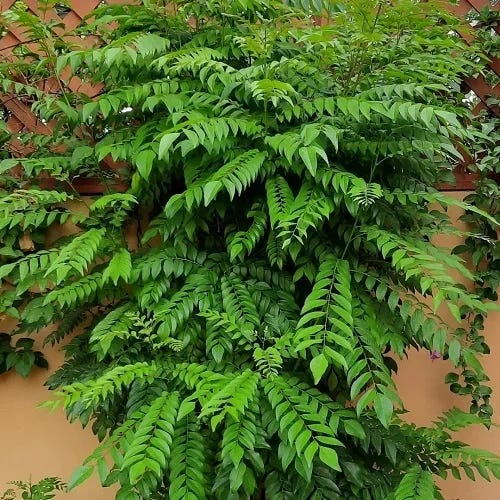
Pest management in Cury leaf
Share
Introduction
Curry leaves, known for their aromatic flavor and numerous health benefits, are a staple in many culinary traditions, especially in South Asian cuisine. These versatile leaves are not only essential for enhancing the taste of various dishes but also play a significant role in traditional medicine. However, like any other crop, curry leaves are susceptible to pest infestations that can severely impact their yield and quality. Effective pest management is crucial to ensure healthy growth and optimal harvest.

Citrus Psylla (Diaphorina citri):
Symptoms: Tiny, sap-sucking psyllids cause yellowing, curling leaves, and sticky honeydew that attracts ants. Sooty mold may grow on the honeydew.
Management: Encourage natural predators like ladybugs and lacewings. Use neem oil spray or insecticidal soap for mild infestations. Consult an expert for severe cases and specific insecticides

.

Citrus Butterfly (Papilio demoleus):
Symptoms: Caterpillars feed on leaves, creating holes and ragged
Management: Handpick caterpillars or disrupt them with water sprays. Encourage natural predators like birds. Bacillus thuringiensis (Bt) sprays can be effective for caterpillars.
Scales: (Unaspis citri and other species)
symptoms: Look for small, armored bumps on leaves, stems, and fruits. These scales suck sap and weaken the plant.
Management: Prune heavily infested Apply horticultural oil sprays during the dormant season. Consult an expert for specific recommendations on scale control products.

Mealybugs: (Planococcus citri)
Symptoms: White, cottony masses on leaves and stems. They suck sap and weaken the plant.
Management: Encourage natural predators like ladybugs and parasitic Use neem oil spray or insecticidal soap for mild infestations. Consult an expert for severe cases and specific insecticides.

Aphids: (Toxoptera aurantii)
Symptoms: Like psyllids, aphids suck sap, causing yellowing, curling leaves, and sticky honeydew.
Management: Use strong water sprays to dislodge them. Encourage natural predators like ladybugs and Use neem oil spray or insecticidal soap for mild infestations. Consult an expert for severe cases and specific insecticides.

Leaf Miners: (Phyllocnistis citrella)
Symptoms: Look for winding tunnels and white frass (insect droppings) within leaves.
Management: Prune heavily infested leaves and Encourage natural predators like parasitic wasps. In severe cases, consult an expert for specific insecticides.

